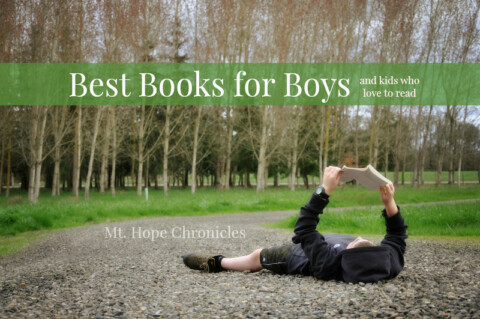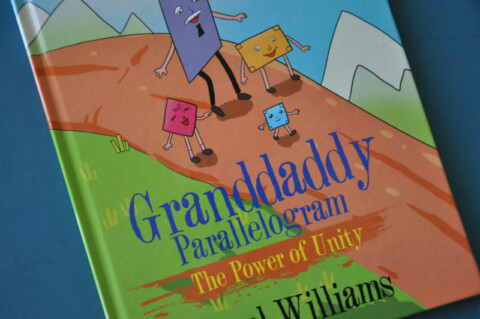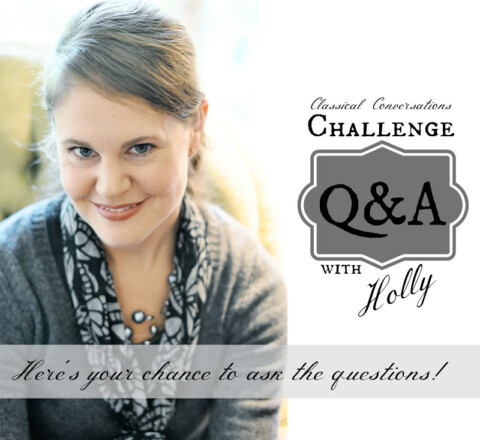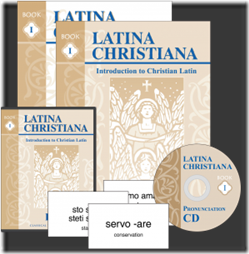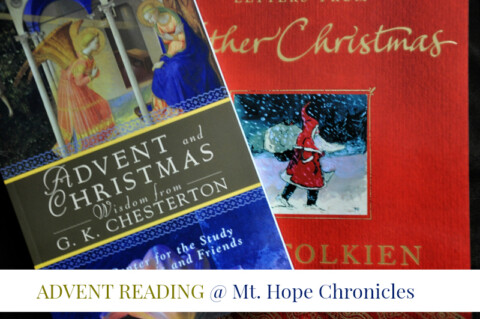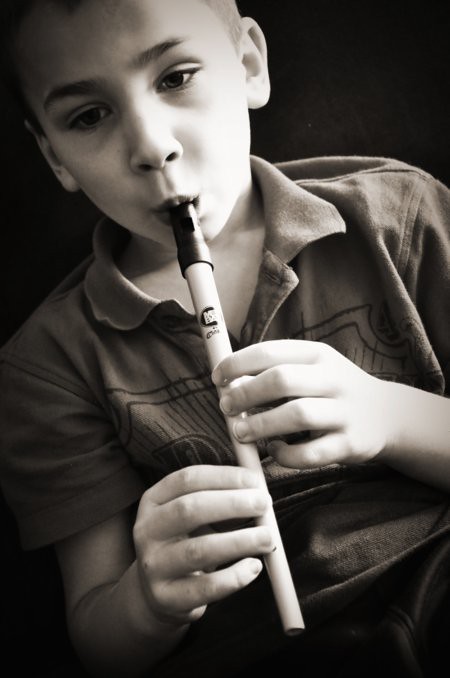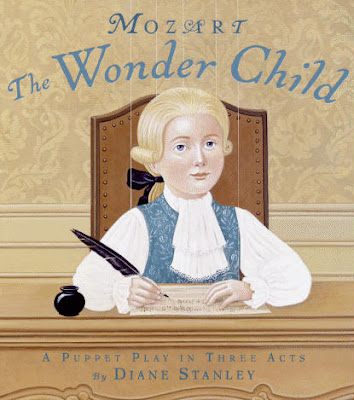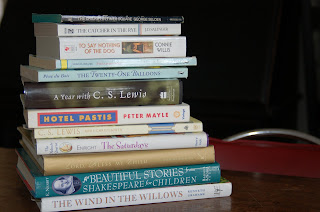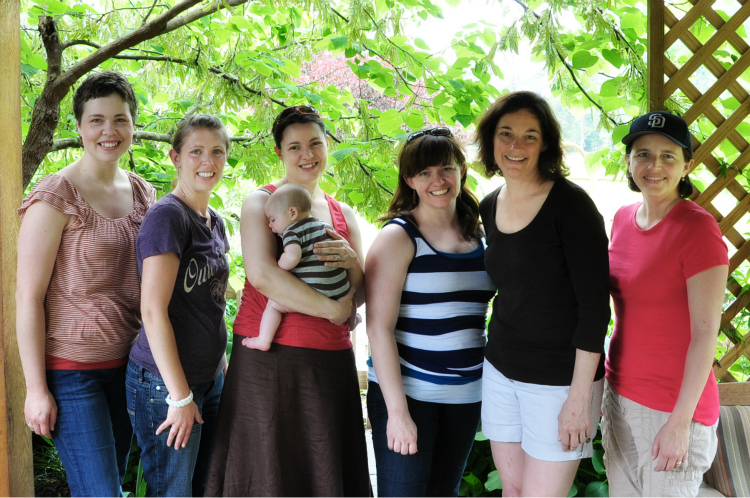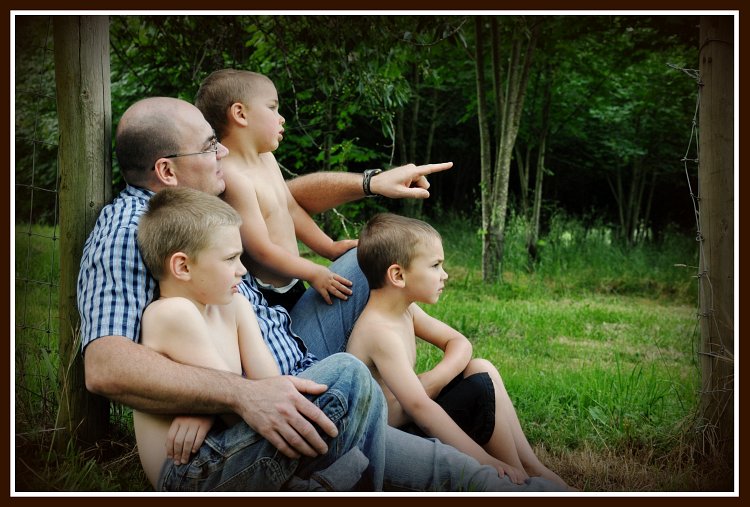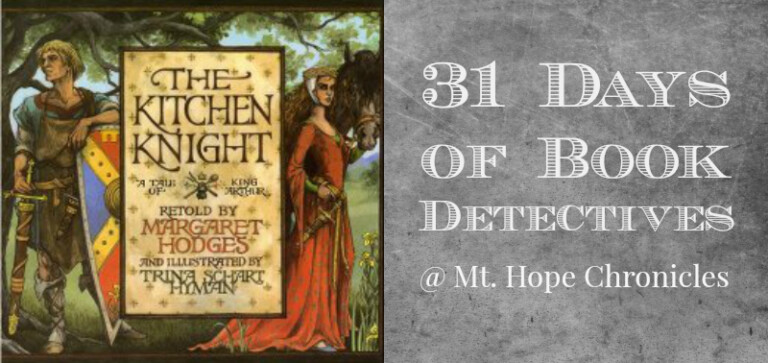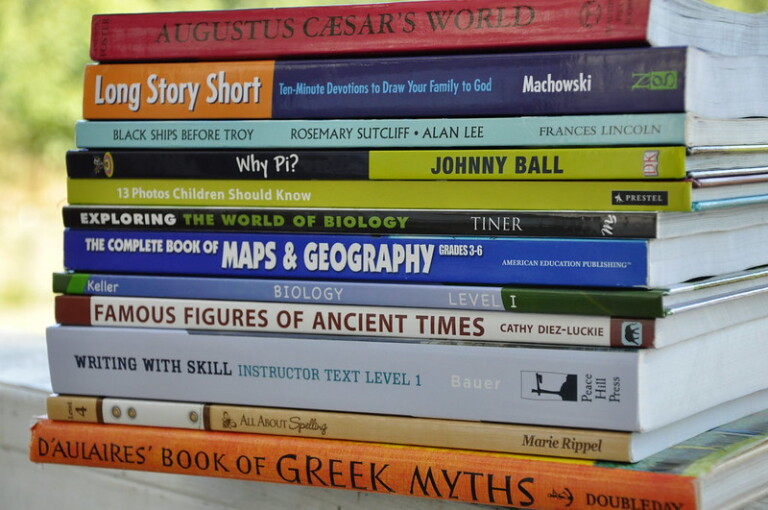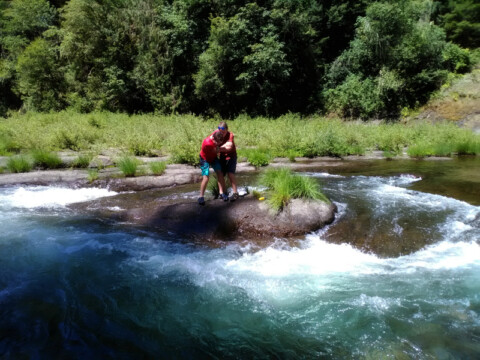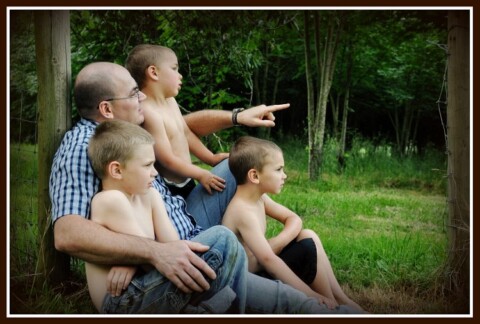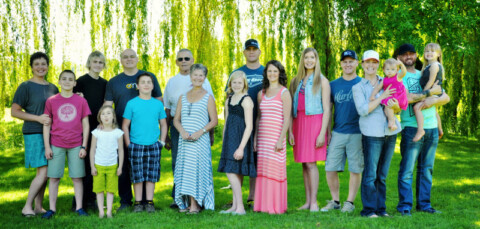
Books
Recent Stories
My name is Heidi Scovel. I am a Christ-follower, daughter, sister, friend, happy wife of Russ, blessed mom of three rambunctious boys and an audacious little girl, book collector, home educator, photographer, lazy control-freak, sentence diagrammer, occasional decorator, house-cleaning avoider,
Hello! to those of you joining me from the Storyformed Podcast. Welcome to Mt. Hope Chronicles!To my regular readers, check out the Storyformed Podcast. Today I’m talking with Holly and Jaime about Favorite Books for Boys.For newcomers, book recommendations are
Joining the Spring Reading Challenge put forth by Seasonal Soundings :For ChocLit Guild:Mere Christianity (C. S. Lewis)North and South (Elizabeth Gaskell)I Dared to Call Him Father (Bilquis Sheikh)Just For Me:To Say Nothing of the Dog (Connie Willis)The Catcher in the
Meal Plan MondayMonday: Spaghetti, Corn, BreadTuesday: Sesame Pork Ribs and Yakisoba Noodles, and Green SaladWednesday: Leftovers (Bake Banana Bread!)Thursday: Pesto Chicken and Pepper Wraps*Friday: Hamburgers, Fries, Carrot SticksSaturday: Chinese Chicken SaladSunday: Easter Dinner at Bambi and Poppy's House(Bringing Lemon Creme
April and May were an absolute blur.April was full of end-of-school-year activities. Easter, Teen Pact (Levi), CC Practicum Speaker Training (me), Memory Master proofs (Leif), Mock Trial (Luke), Robin Hood Ball/English Country Dance (Levi), hiking (lots), movies, work (Levi), swim
We are currently attempting to learn to play the tin whistle (along with music theory) in our Classical Conversations classes. This is a wonderful way to introduce children to an instrument. Not only is a tin whistle an instrument that
Load More
Categories
-
